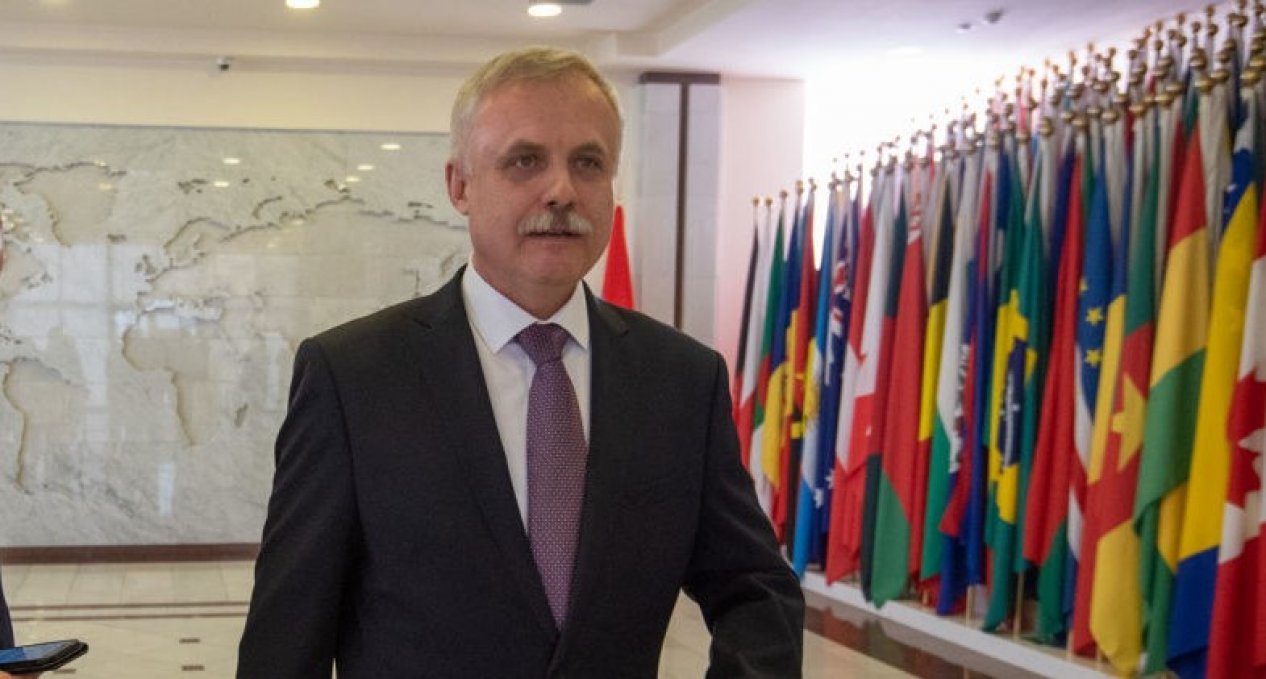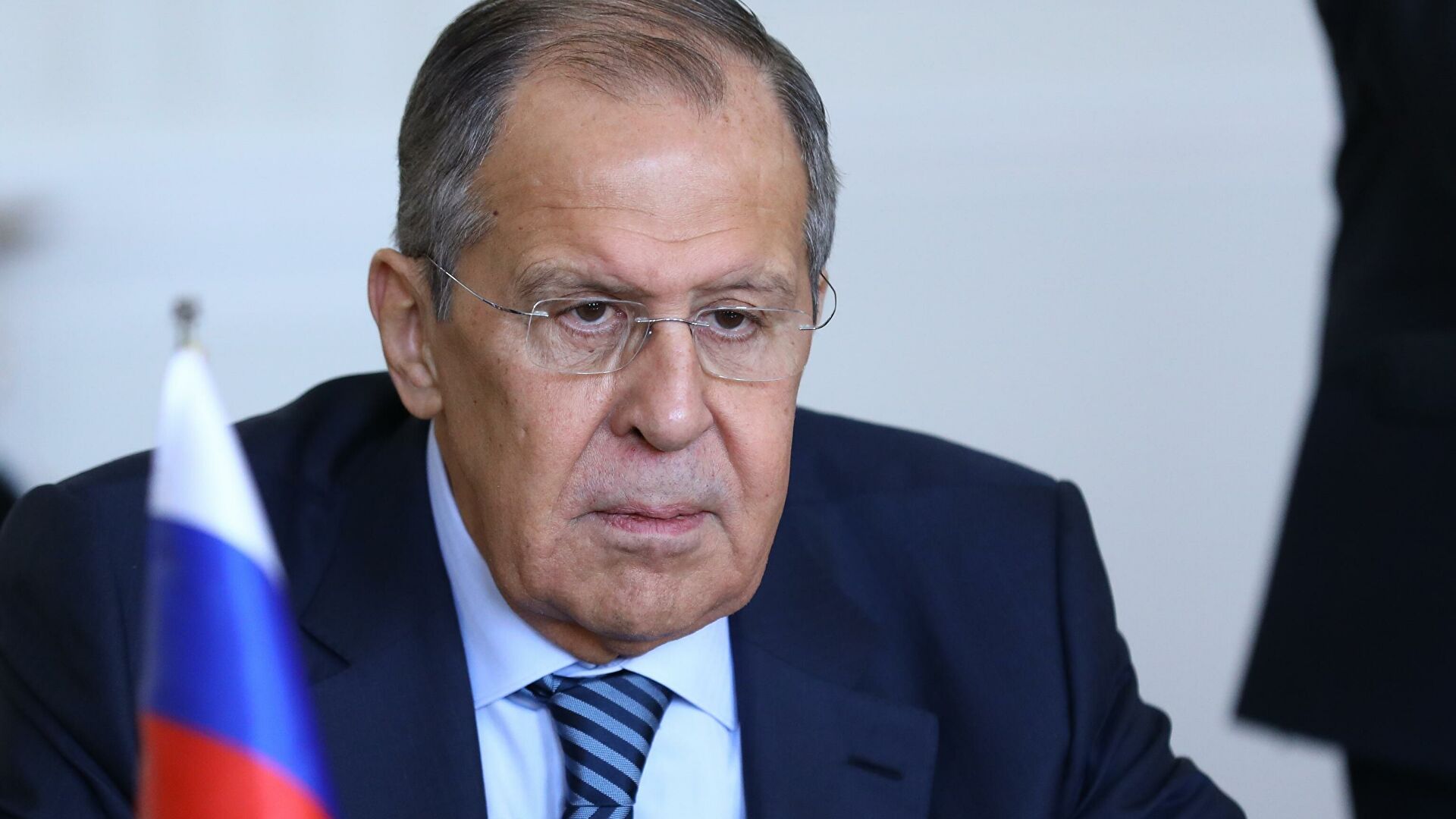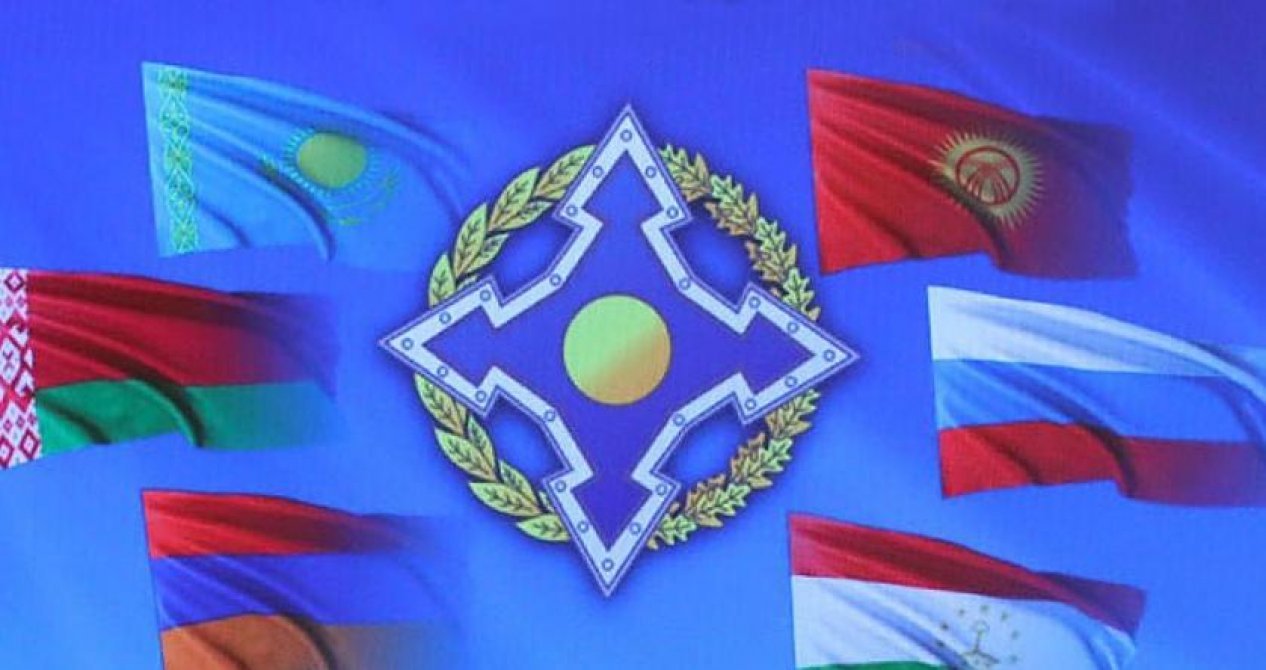
The potential of the Collective Security Treaty Organization (CSTO) is used only in case of an aggression, an attack (on one of the member countries). Here we are dealing, in fact, with a border incident. Thank God there are no casualties, no shooting. This is a border incident, it must be resolved, and we are in favor of resolving it peacefully, Secretary General of the Organization Stanislav Zas told reporters, commenting on the appeal of Armenia, made in May.
He added that at present there is no information that the situation there (in Zangezur - ed.) has aggravated: "there is a lot of work ahead regarding the border, all these controversial issues, but they need to be resolved through negotiations."

For clarity, let’s remind that on May 12 of this year, the Azerbaijani side, within the framework of clarifying the border, took positions near Lake Garagol, located on the border of the Lachin region. Yerevan accused Azerbaijan of aggression, claiming that this territory is Armenia. Then Armenian Prime Minister Nikol Pashinyan appealed to the CSTO and the leaders of the organization's member states with a request to intervene in the situation.
Baku has recently issued a statement on this issue and clarified the situation at the border. The press service of the Ministry of Foreign Affairs said that the border forces of Azerbaijan are deployed in positions located on Azerbaijani territory. This process is carried out as usual, systematically. It was emphasized in the message that the process is carried out on the basis of maps defining the border line between Armenia and Azerbaijan. The Azerbaijani Foreign Ministry recommended Armenia to accept the reality of the regime of the interstate border in the Zangilan, Gubadli, Lachin and Kalbajar regions and not to escalate the situation in the region without reason.

Also, the Russian side, as a member of the CSTO, said that it sees no reason for exacerbating emotions. Russian Foreign Minister Sergey Lavrov spoke about the need to begin demarcation and delimitation of borders. He stressed that for this purpose, Moscow has come up with an initiative to create a joint Azerbaijani-Armenian commission. In fact, Moscow thereby indicated that the point is in the delimitation and, therefore, it doesn’t agree with the claims of Yerevan.
As for the question of whether the CSTO has the authority to intervene in situations of this kind, let’s consider the organization's charter and the Collective Security Treaty of the CSTO countries.
Article 3 of the Charter notes that the goals of the Organization are the strengthening of peace, international and regional security and stability, the protection on a collective basis of the independence, territorial integrity and sovereignty of the member states, in achieving which the member states give priority to political means.

Article 4 of the Collective Security Treaty says that if one of the participating States is subjected to aggression (an armed attack threatening security, stability, territorial integrity and sovereignty), this will be considered by the participating States as aggression (an armed attack threatening security, stability, territorial integrity and sovereignty) for all states - parties to this Treaty.
As is seen, the tasks and powers of the organization are specifically defined. The participating countries can provide military support only if the territory of one of them is under armed attack. However, not a single fact of the military intervention of the Azerbaijani side on the territory of Armenia has been recorded. Simply put, the Armenian side, after the trilateral statement of November 10, tried to present the ongoing border demarcation as a military intervention. This is indirectly confirmed by the position of the CSTO Secretary General, and similar comments by Russian Foreign Minister Sergey Lavrov on this issue.
It is not the first time that Armenia appeals to the CSTO. During the Second Karabakh War, Yerevan already made such an attempt. However, Russian President Vladimir Putin rejected these attempts in the very first days of the war, saying that "military operations are not being conducted on the territory of Armenia."




















